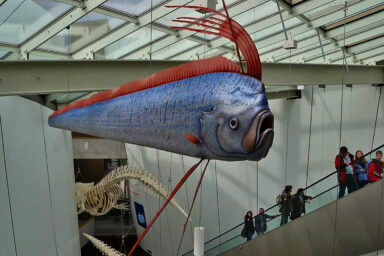Gun Sales Are Surging, but Background Checks Aren’t Keeping Up
This Recession Is a Bigger Housing Crisis Than 2008 ; So Much for the Decentralized Internet ; and More Picks
This Recession Is a Bigger Housing Crisis Than 2008 ; So Much for the Decentralized Internet ; and More Picks 7/31
This Recession Is a Bigger Housing Crisis Than 2008 (Dana)
The author writes, “The impending flood of evictions is partially dammed by a federal moratorium that covers one-fourth of all renters, the $600 federal unemployment insurance bonus, and the recent dispersion of $1,200 coronavirus relief checks. But even with these protections, a great many renters are being washed out of their homes while millions more accrue onerous debts. Roughly one-third of U.S. households have not made their full housing payments for July, according to a survey by the online retail platform Apartment List. In New York City, one-quarter of all renters haven’t paid their landlords since March.”
So Much for the Decentralized Internet (Chris C.)
The author writes, “The [Twitter hack] underscores how centralized the internet has become: According to the Times report, one hacker secured entry into a Slack channel. There, they found credentials to access Twitter’s internal tools, which they used to hijack and resell accounts with desirable usernames, before posting messages on high-follower accounts in an attempt to defraud bystanders.”
COVID-19 Shutdown Led to Increased Solar Power Output (Mili)
The author writes, “As the Covid-19 shutdowns and stay-at-home orders brought much of the world’s travel and commerce to a standstill, people around the world started noticing clearer skies as a result of lower levels of air pollution. Now, researchers have been able to demonstrate that those clearer skies had a measurable impact on the output from solar photovoltaic panels, leading to a more than 8 percent increase in the power output from installations in Delhi. While such an improved output was not unexpected, the researchers say this is the first study to demonstrate and quantify the impact of the reduced air pollution on solar output.”
Yemeni Girl, 10, Stuck Abroad as Family Waits Anxiously in San Francisco (Reader Steve)
From the San Francisco Chronicle: “The Saleh family had been trying to leave Yemen, their war-torn homeland, for years. Raghad’s father, Abu Bakr Saleh, made it to the U.S. in 2016, joining his father in San Francisco and preparing to send for [his wife] Albadani and their four children as soon as he was settled. The family traveled to Egypt to wait. The good news — and the family’s visas — came on March 1. But not Raghad’s. It’s still unclear why. At first, the U.S. Embassy in Cairo assured the family that it would take only a few weeks to fix the mixup and grant the child a visa. That was before the coronavirus pandemic hit.”
One Mystery of Stonehenge’s Origins Has Finally Been Solved (Dana)
From Scientific American: “For more than four centuries, archaeologists and geologists have sought to determine the geographical origins of the stones used to build Stonehenge thousands of years ago. Pinning down the source of the large blocks known as sarsens that form the bulk of the monument has proved especially elusive. Now researchers have resolved the mystery: 50 of the 52 extant sarsens at Stonehenge came from the West Woods site in the English county of Wiltshire, located 25 kilometers to the north of Stonehenge.”


